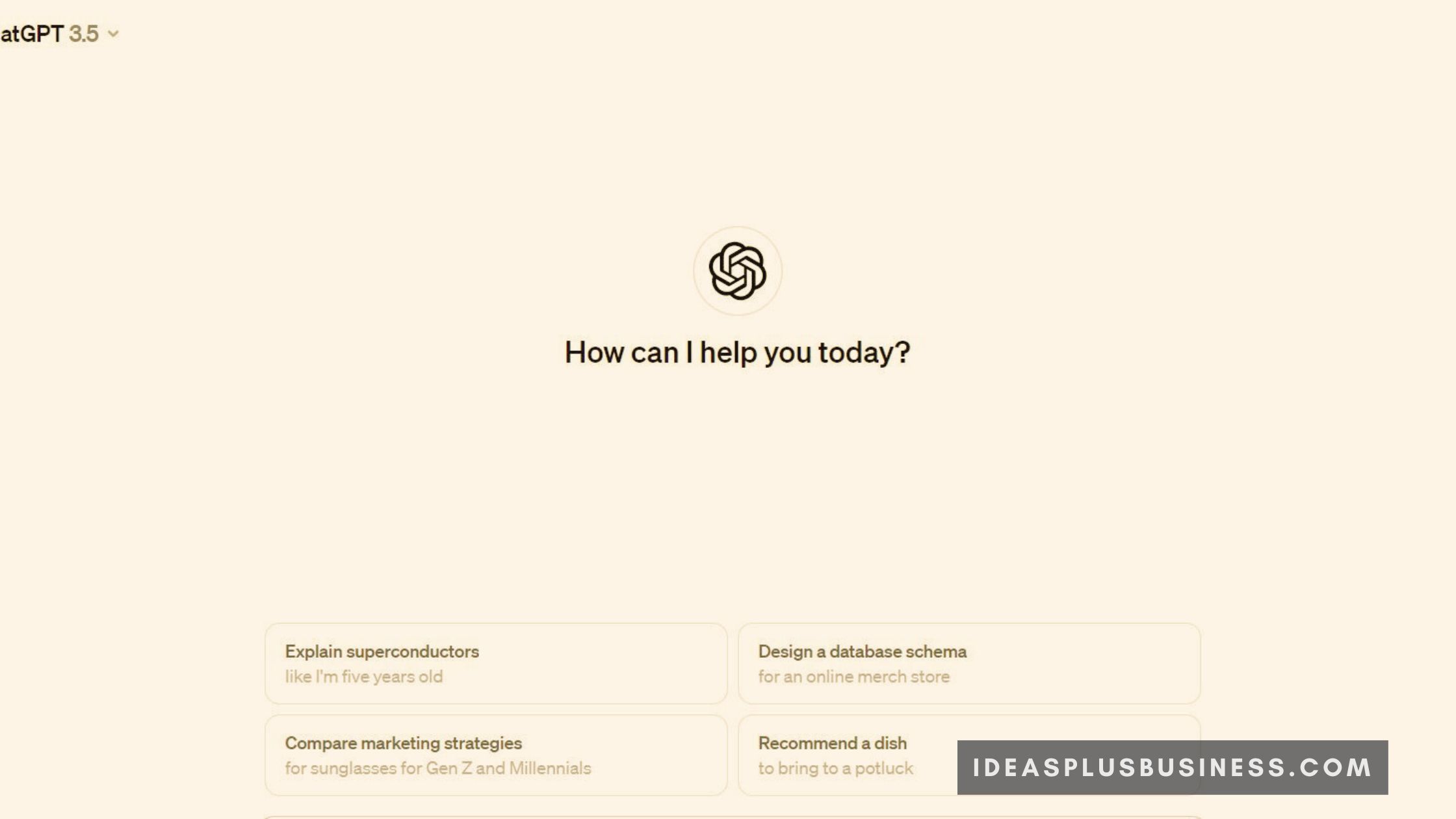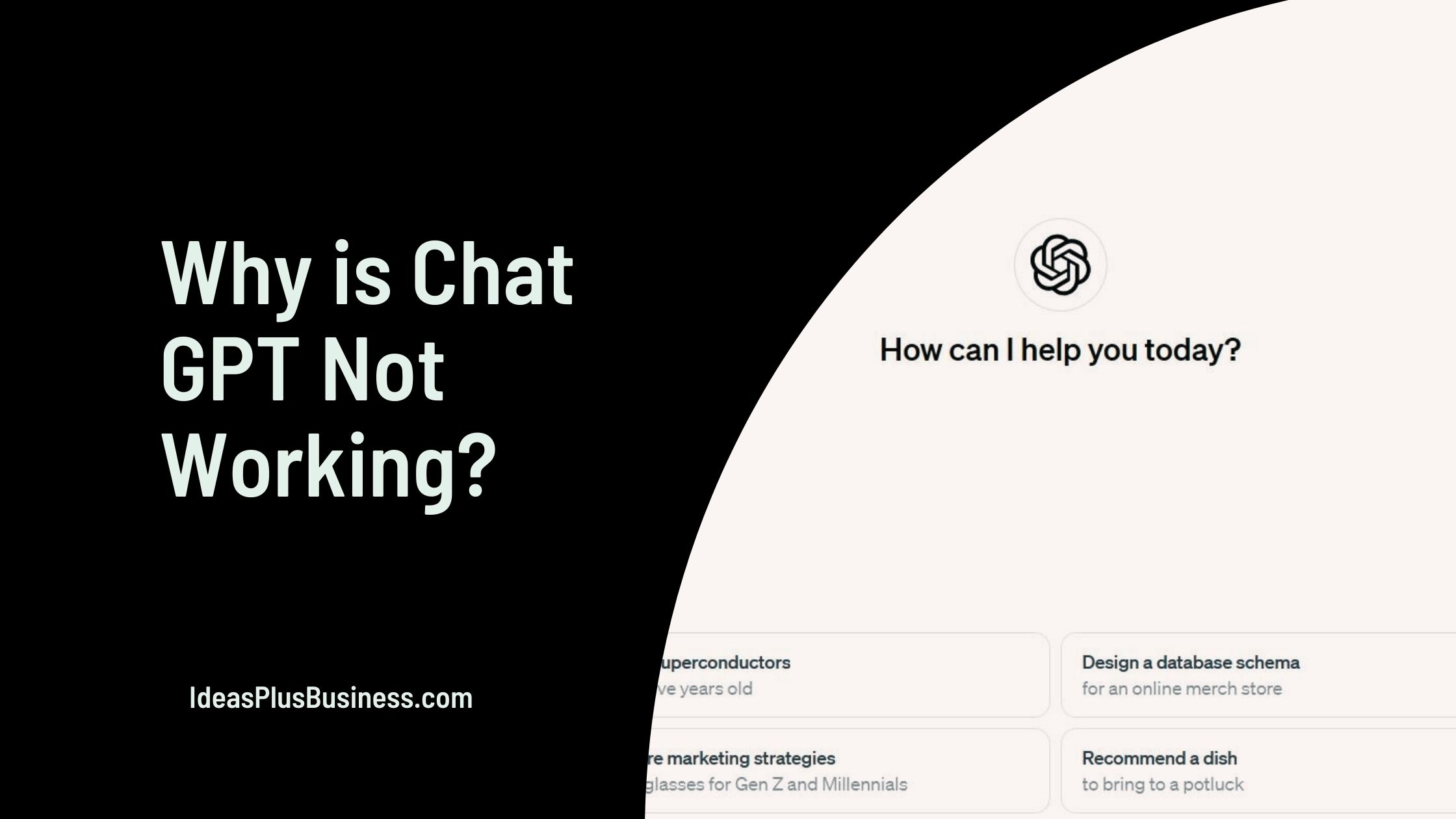Is Chat GPT not working today? Why is Chat GPT not working on Chrome as expected? Why is Chat GPT not working today? There could be several reasons why Chat GPT may not be working as expected.
When having AI-driven conversations, Chat GPT offers a dynamic and engaging experience. However, users may encounter challenges that impact the seamless functioning of the platform.
In this article, we provide the common issues and solutions to the question: why is Chat GPT not working today?
Why is Chat GPT not Working?
Is Chat GPT not working today? Here are some common answers to the question of why Chat GPT is not working and explanations on how to fix this problem:
1. Internet Connection
A stable internet connection is fundamental for real-time communication with Chat GPT servers and influences the overall user experience.
For example, using ChatGPT during a period of slow or intermittent internet connectivity could result in delayed responses and an overall frustrating experience.
2. Server Outage
Scheduled maintenance or unexpected technical glitches can lead to server outages, disrupting user interactions.
Suppose a user attempts to use ChatGPT during such an outage; they might receive error messages or experience unresponsiveness, indicating a scheduled or unscheduled interruption.
3. Browser Compatibility
Choosing a widely used and updated browser, such as Google Chrome or Mozilla Firefox, is crucial for optimal compatibility.
Outdated or less common browsers may result in rendering issues, impacting the visual presentation and functionality of ChatGPT’s interface.

4. Device Compatibility
The performance of ChatGPT may vary across devices, with high-performance desktop computers offering a superior experience.
For instance, using ChatGPT on a budget smartphone with limited processing power may result in slower response times and a less responsive interface.
5. Cookies and Cache
Clearing cookies and cache is akin to starting with a clean slate, preventing discrepancies in responses, and ensuring a fresh and accurate interaction with ChatGPT.
Over time, cached data can lead to repetitiveness in responses or unexpected errors.
6. Firewall or Security Software
While firewalls and security software are vital for protection, they may block essential connections. Adjusting settings to allow necessary connections for seamless communication is essential.
For example, a security software firewall might block ChatGPT’s connections, leading to communication breakdowns.
7. Service Limitations
Understanding usage limits, especially with free versions, is essential. Exceeding these limits may result in restricted access until the usage counter resets.
For instance, if a user attempts to make queries beyond the specified limit, they may receive a notification about exceeding usage constraints.
8. Subscription Status
For subscription-based models, ensuring your subscription is active and up-to-date is crucial for uninterrupted access to premium features.
Users with expired subscriptions might encounter prompts to renew before accessing enhanced ChatGPT capabilities.
9. Script or Ad Blockers
Ad blockers, if too aggressive, can interfere with ChatGPT’s scripts. Temporarily disabling them helps identify if they are causing any hindrance.
For example, a user might notice that ChatGPT’s interface is not loading properly due to an ad blocker preventing essential scripts.
10. Cookies Settings
Adjusting cookie settings is crucial for proper session management, preventing issues related to ChatGPT’s memory constraints.
Enabling first-party cookies ensures that ChatGPT can maintain a continuous conversation without interruptions.
11. Geographical Restrictions
Certain services may restrict access based on geographical locations.
Users attempting to access ChatGPT from a restricted region may encounter an error message, indicating that the service is not available in their location.

12. Device Resource Limitations
Closing resource-intensive applications ensures that ChatGPT receives ample resources for improved responsiveness.
For example, a user running multiple demanding applications alongside ChatGPT may experience lag and slow response times.
13. User Account Issues
Expired passwords or locked accounts can deny access to ChatGPT. Resolving account-related issues is essential for uninterrupted use.
A user with a locked account might be prompted to reset their password or contact support to regain access.
14. Check for Updates
Regularly checking for updates ensures users benefit from the latest enhancements and bug fixes, addressing unexpected issues.
Users may notice improvements in performance and additional features after updating ChatGPT to the latest version.
15. API Rate Limits
Developers must be mindful of API rate limits to avoid temporary restrictions, allowing for uninterrupted use of Chat GPT.
If a developer exceeds the allowed rate of API requests per minute, they may encounter error messages until the rate limit is reset.
16. Browser Extensions or Add-ons
Disabling extensions like Grammarly or language translation tools help identify if any are causing Chat GPT to malfunction. For example, a user might realize that disabling a specific extension resolves issues with ChatGPT’s interface.
17. Firewall Settings
Firewalls may block ChatGPT’s connections. Reviewing firewall logs and creating exceptions resolves connectivity issues.
Users can check firewall logs to identify specific blocked connections and adjust settings accordingly.
18. VPN or Proxy Issues
VPN or proxy configurations can impact connections to Chat GPT servers. Adjusting settings or temporarily disabling them may resolve connectivity issues.
A user might need to modify VPN settings to allow ChatGPT to establish a secure connection.
19. Cross-Origin Resource Sharing (CORS) Errors
Developers encountering CORS issues need to configure servers with appropriate headers to ensure seamless integration.
A web developer may need to add specific headers to their server configuration to resolve CORS-related problems.
20. Malware or Security Threats
Malware can compromise both device security and Chat GPT performance. Regular security scans help identify and remove malicious software.
Users experiencing erratic behavior in ChatGPT should perform a thorough security scan to ensure a secure environment.
21. Network Configuration
In a corporate setting, aligning network configurations with ChatGPT requirements ensures seamless external connections.
Users in a corporate network may need to coordinate with their IT department to ensure that network configurations allow access to ChatGPT servers.
22. User Permissions
Enterprise users may lack permissions for specific Chat GPT features. Adjusting permissions with administrators resolves this issue.
For example, an enterprise user might be unable to access certain advanced features until an administrator grants appropriate permissions.
23. Community Forums and Feedback
Exploring community forums provides valuable insights into common issues and solutions. Users can learn from others who have experienced similar challenges and discover community-driven workarounds or solutions to specific problems.
24. Natural Language Understanding
Users can enhance ChatGPT’s understanding by providing clear and context-rich input, minimizing ambiguous queries for more accurate responses. For instance, specifying context or rephrasing queries may lead to more relevant and helpful answers.

25. Patience and Retry
During peak usage times, users may encounter delays. Being patient and retrying after a brief interval often leads to successful interactions with Chat GPT.
Users might experience temporary unavailability during peak hours, and retrying after a short wait can result in a smoother experience.
Conclusion
Here are the common issues and solutions to the question of why Chat GPT is not working. Users can optimize their interactions with ChatGPT by understanding and applying these solutions.
If challenges persist, reaching out to official Chat GPT support channels for personalized assistance is always advisable.

I am Adeyemi Adetilewa, the Editor of IdeasPlusBusiness.com. I help brands share unique and impactful stories through the use of online marketing. My work has been featured in the Huffington Post, Thrive Global, Addicted2Success, Hackernoon, The Good Men Project, and other publications.


